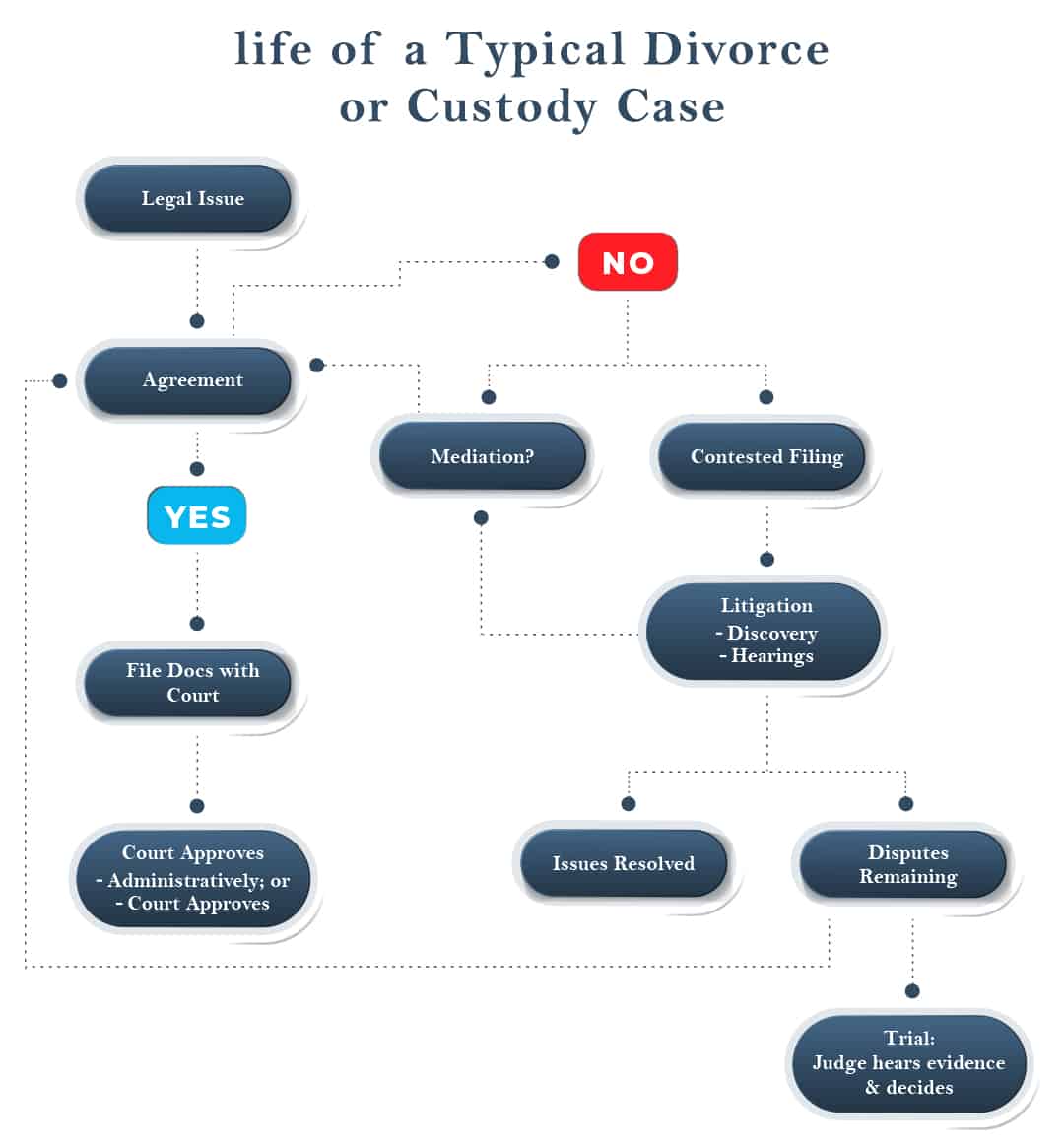Life of A Typical Divorce or Custody Case in Massachusetts

This is the life of a typical divorce or custody case in Massachusetts.

An issue generally arises when:
- Parties are getting married, but want a prenup;
- Parties are getting divorced. Here’s Divorce Info
- Parties were never married, but share a child and are splitting, so they need a custody order; Here’s Custody Cases Info
- Parties already have a court order, but need it changed. Here’s info on Modifications; or
- Parties already have a court order, but one party isn’t complying. Here’s info on Contempt
First, if the parties have an agreement, they can file the appropriate documents with the Probate and Family Court. Usually, unless there’s a defect with the documents or the agreement is patently unfair, the Court will approve it. They sometimes do this administratively, but sometimes, the parties have to appear in court.
If there is no agreement, the parties have options. If they think they can work things out with some guidance, they can try mediation, which is a third party – usually a family law attorney – who guides them toward resolution. If it works, they can file the appropriate documents with the court for approval. However, the more you have at stake, the riskier it is to launch into mediation on your own without the guidance of a lawyer. Not the mediator as that person is neutral and generally cannot advise you, but your own lawyer.
If mediation is not a good option or doesn’t work, a contested filing is the next step.
A contested filing involves one party filing documents with the court. The court sends some documents back to the filing party. Those documents are then served on the other party, and the case officially begins. The parties typically exchange information (discovery), and depending on the issues, there are usually hearings to address the issues in dispute.
As the parties proceed in a contested case, there are usually negotiations. If the issues are resolved, the appropriate documents can be filed with the court and ultimately approved. If there are still disputed issues, the parties can opt to try mediation. If that isn’t a good fit or doesn’t work, the case typically moves toward trial, which is the ultimate event at which the judge hears and examines evidence and makes the final decision.
When the case is finally complete, a “Judgment” is issued by the court, either approving the parties’ agreement or it’s a decision made by the court after a contested hearing.

Your Quick Guide To The Best Divorce In Massachusetts
Download A Free Copy Of Our EBook, “Your Quick Guide To The Best Divorce In Massachusetts: A Successful Start To
Your New Life” By Clicking On The Link Below.

